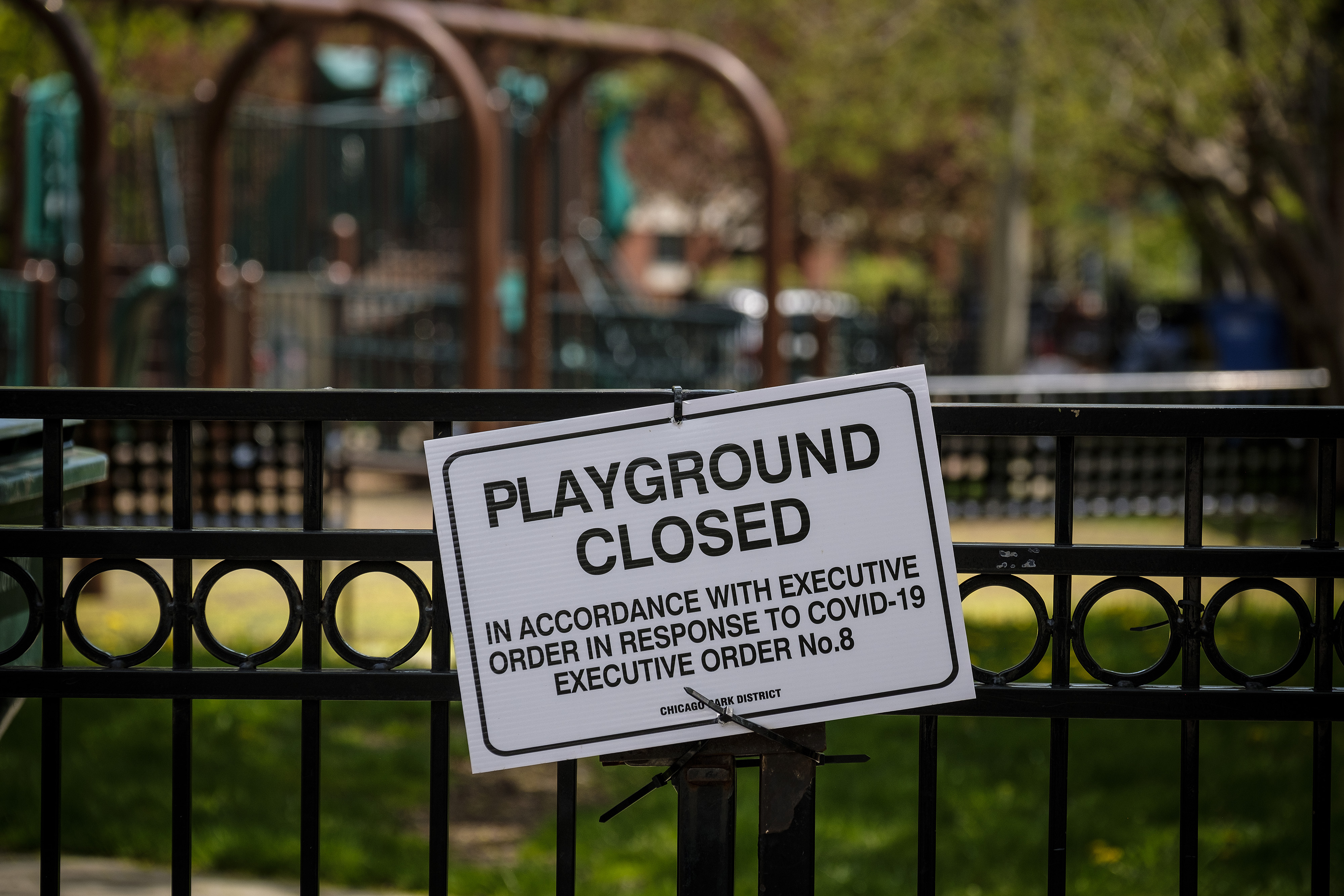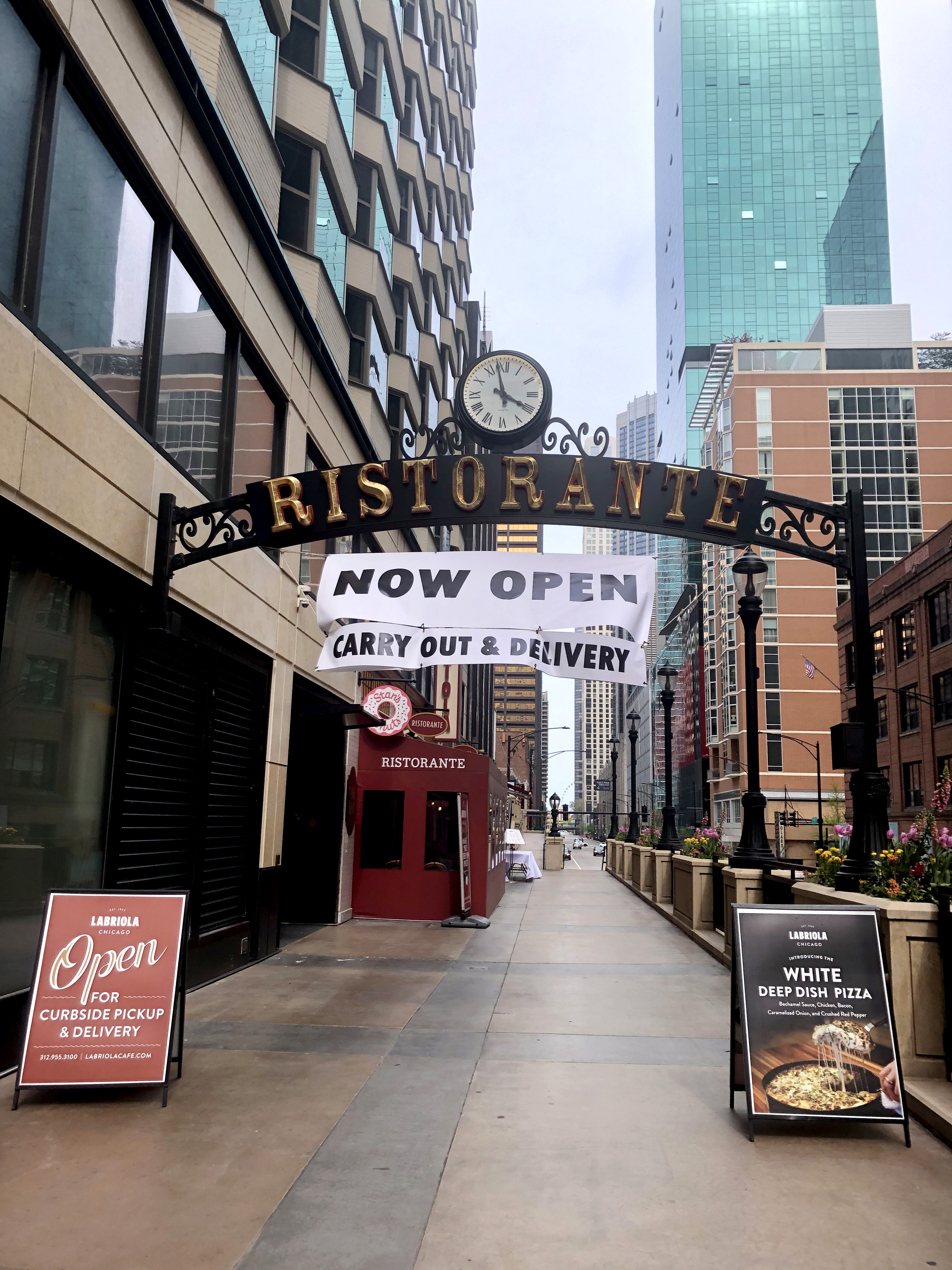Chicago won't be transitioning into phase three of its reopening plan along with the rest of Illinois, but the city on Tuesday released guidelines for businesses as it prepares to ease restrictions in early June.
The industry-specific guidelines include plans to help childcare centers, non-lakefront parks, libraries, offices, hotels, outdoor attractions retailers and more open their doors when the city does enter its next stage.
(Read the full guidelines here)
“Our transition to Phase Three of our reopening framework represents a major step for Chicago and our journey to a safe and successful recovery from the unprecedented COVID-19 crisis,” Mayor Lori Lightfoot said in a statement. “These new industry guidelines were developed in close partnership with industry leaders in order to provide as clear of a direction as possible on how to keep both employees and customers safe, but our work is far from over. In the coming weeks, we will continue working closely with representatives from across our city’s industry, labor, health, public service, and faith communities, along with others, to ensure every step we take is informed by the data and science of this disease, and supports our mission of recovering from this crisis more resilient, more prosperous, and more powerful than we’ve ever been.”
Among the industries reopening or continuing to operate in the next stage are:
- Childcare centers and family childcare
- Non-lakefront parks (no contact sports)
- Libraries and other city services
- Office-based jobs, professional services, and real estate services
- Hotels / lodging
- Outdoor attractions (e.g., boating – not including the Playpen, non-Lakefront golf courses)
- Non-essential retail
- Personal services (e.g., hair/nail salons, barbershops, tattoo parlors)
- Restaurants and coffee shops (outdoor dining only)
- Manufacturing, construction, and warehousing
- Hospitals, dentists, community mental health centers, and Federally Qualified Health Centers
- Public transit, regional transit, taxis and rideshare
The mayor said plans for sporting events, religious services, outdoor performances, summer programs and youth activities, the lakefront and museums will be available later in phase three "when those entities are predicted to begin reopening."
“As we begin the road to recovery, it is critical that all Chicago businesses follow the guidance released today to reopen safely and responsibly,” Rosa Escareno, BACP commissioner, said in a statement. “The health and safety of our residents has to remain the priority, and these guidelines give Chicago’s businesses a roadmap to begin reopening while protecting our community.”
Lightfoot has previously said she cannot give an exact date for when Chicago will enter phase three because "we just don't know yet."
"I don't think it's mid-June, I think it's early June," she said last week, adding that she sees it happening before June 10 and sometime in the "single digits."
Lightfoot noted that while the city is on track to reach that mark, "we will remain in phase two if those numbers take a different turn."
"A lot depends on the steps you take between now and then," Lightfoot said at the time.
Cook County continues to have the highest number of confirmed coronavirus cases in the U.S., but health officials expressed optimism Tuesday in Illinois' data, which appears to show a downward trend that could mark a decline from a peak.
Once Chicago does transition, strict physical distancing and masks will still be required, officials said.
Here are the guidelines residents must still follow:
- When in the presence of others, keeping 6 feet of physical distance apart and wear a face covering
- Non-business, social gatherings limited to <10 persons
- Phased, limited public amenities begin to open
- Stay at home if you feel ill or have come into contact with someone with COVID-19
- Continue to physically distance from vulnerable populations
- Get tested if you have symptoms
Here's a look at the criteria Chicago must meet in order to enter phase three:
Declining Rate of New COVID-19 Cases
- COVID-19 Cases Rate (over 14 days, based on a 7-day rolling average): Declining rate of new cases, based on incidence and/or percent positivity
- Severe Outcome Rate (over 14 days, based on a 7-day rolling average): Stable or declining rates of cases resulting in hospitalization, ICU admission, and/or death
- Syndromic Surveillance: Declining emergency department visits for influenza-like illness and/or COVID-like illness for 14 days
Adequate Hospital Capacity
- Hospital Capacity Citywide (over 14 days, based on a 7-day rolling average): Hospital beds <1800 COVID patients, ICU beds <600 COVID patients, Ventilators <450 COVID patients
Adequate Testing Capacity:
- Testing Capacity: Ability to perform 4,500 tests per day
- Testing Percent Positivity Rate: Community positivity rate <15%
Adequate Response Capacity:
- Case Investigation & Contact Tracing: Expanded system in place for congregate and community investigations and contact tracing



